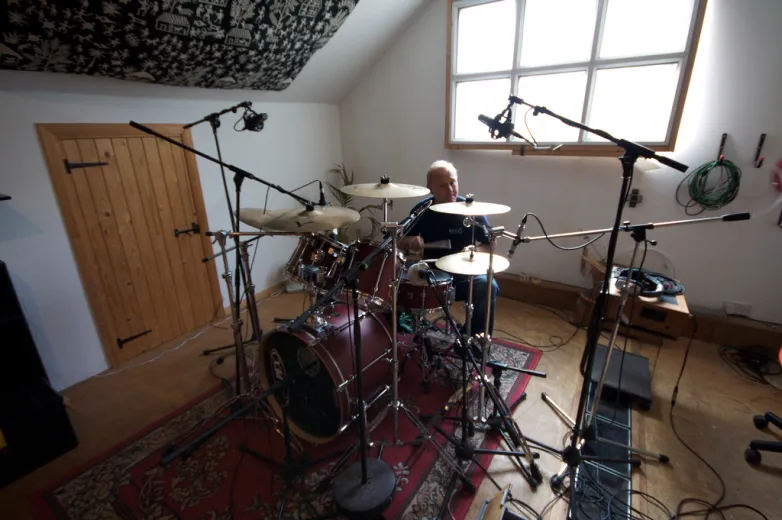Is Mixing Even Necessary?
Nov 04, 2011Today I want to ask a ridiculous question: is mixing even necessary? I was reading through the most recent issue of Sound On Sound magazine when I came across an interesting interview with the guys from the rock band, Incubus. Their latest record, If Not Now, When? was produced by one of my favorite producers Brendan O’Brien, but interestingly enough it does not have a mixing credit. It says who engineered and produced the album, but no mixing credit is given.
Mix From The Moment You Are Recording
The recording engineer for If Not Now, When? Tom Syrowski clues us in when he tells SOS, “During all the recording sessions we tried to get things to sound the way we wanted right from the beginning, at source.” Wow, what a concept! The band and the engineers/producers actually spent most of their time trying to capture the exact tone, energy, balance, and performance that they wanted in the final mix.

Via Steve Jay Flickr
Syrowski goes on to say “We don’t take the approach of fixing it later in the mix, we mix from the moment we are recording. When the band comes in after a take and wants to hear what we did, we want it to sound like a record.” This clearly explains why Brendan O’Brien didn’t feel it necessary to put his name as the mixer for the album, because to everyone’s own admission in the article, he didn’t have a whole lot left to do and the mixes were churned out super quick.
How This Applies To You And Me
So you may have heard this all before, “Get it right at the source.” “Don’t try to fix it in the mix later.” And suggestions like this might frustrate you. But I have to be honest, it’s some of the BEST recording and mixing advice you could ever hear. And if you embrace it, your final mixes will turn out WAY better than if you ignore it.
Practically speaking this is how I believe these concepts can apply to you and me in our studios:
- Allow more time for the recording phase than you think it will take. By simply giving yourself (maybe just mentally) more time in the “recording” phase of things, your chances of success go way up. Not that more time is the answer, it just opens you up to actually trying different mic positions, mic choices, preamp settings, arrangement ideas, guitar effects, etc without feeling the pressure to get it down and move on.
- Let go of the idea that your tracks will somehow sound better than they actually do, later. If the kick drum sound you’re getting sounds crappy, well then I suggest you do something about it! If the there is a lot of hiss on your guitar amp that is driving you nuts, then swap out an amp or turn down the gain. That hiss will still be there come mixing time. Be a real man (or woman) and do something about the bad sounds you’re actually capturing. Don’t assume they will magically improve later.
- Don’t settle for mediocrity. Just because you’re new at this recording thing, or don’t have a lot of high end (or medium end) equipment, doesn’t mean you have to settle for amateur sounding recordings. Don’t give yourself the easy out of saying “Oh, I don’t have professional equipment so my tracks can only sound but so good.” That’s just an excuse for not trying. You need to get your hands dirty and do whatever it takes to make a killer record, no matter what gear or experience you have. That is how you learn! Be obsessive almost about getting great sounds and don’t stop until you do.
No Mixing Necessary
When you’re recording your next project, record things so ridiculously well that you almost don’t even need to mix it at all. If you make that your goal every time, I promise your tracks will almost mix themselves when you DO sit down to put the finishing touches on them. Don’t be lazy like so many home studio users out there. Be different, be intentional, be creative, be gutsy, and record like there’s no tomorrow!
Discover The 6 Steps for Creating a
Radio-Ready Song from Scratch"
Enter Your Email Below To Receive The Free 17-page PDF,
"6 Steps To A Radio-Ready Song"
We hate SPAM. We will never sell your information, for any reason.

